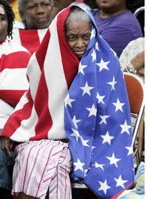UALR, Clinton School Host Poverty Symposium
UALR and the Clinton School of Public Service will host a two-day symposium Aug. 7 and 8 of universities offering a sustained curricular education focused on poverty and human capability.
 Dean Skip Rutherford of the Clinton School and UALR Chancellor Joel E. Anderson said they were honored to host the first Shepherd Higher Education Consortium on Poverty conference.
Dean Skip Rutherford of the Clinton School and UALR Chancellor Joel E. Anderson said they were honored to host the first Shepherd Higher Education Consortium on Poverty conference.
“We are a proud new member of the consortium and are enthusiastic about its commitment to eliminate poverty,” Anderson said.
The Clinton School of Public Service has been a collaborating partner with the Shepherd Consortium institutions throughout the preparation for this new venture in higher education.
“As the first school in the nation to offer a master of public service degree, we have focused a lot of attention and energy on issues related to poverty, so we’re pleased to have the opportunity to take part in this symposium with the Shepherd Consortium,” Rutherford said. “We look forward to learning from what is an exciting model for studying and addressing poverty in our country.”
The Shepherd Higher Education Consortium on Poverty, established earlier this spring, introduces a collaborative initiative for sustained education focused on poverty and human capability into undergraduate and professional education.
David Sink, UALR Shepherd Program coordinator, said the poverty studies program is taking a multidisciplinary approach.
“We hope to include faculty and students from various departments and address this pernicious issue from the viewpoint of experts in community and economic development, health, economics and business, social welfare, education, and policy studies,” he said.
The conference in Little Rock will mark the first major event in the consortium’s history and will include presentations by students from the member institutions on their recently completed summer internships, plus a symposium on teaching poverty for faculty and students.
“This is a landmark event for the consortium,” said Harlan Beckley, Fletcher Otey Thomas Professor of Religion and director of the Shepherd Poverty Program at Washington and Lee. “We are bringing together for the first time a group of institutions that have committed to combining class coursework and co-curricular firsthand service and leadership in the area of poverty studies.”
In June, the consortium began its joint activities when 73 students from the 14 consortium institutions embarked on summer internships in a wide variety of locations and settings. When the students assemble at UALR on Aug. 7, they will each report on their experiences in a day of panels and presentations in the Frueauff Closing Conference, sponsored by the Charles A. Frueauff Foundation of Little Rock.
 On the following day, the consortium will hold its first symposium at the Clinton School. Sheldon Danziger, the Henry J. Meyer Distinguished University Professor of Public Policy at the University of Michigan’s Population Studies Center, will present the keynote address.
On the following day, the consortium will hold its first symposium at the Clinton School. Sheldon Danziger, the Henry J. Meyer Distinguished University Professor of Public Policy at the University of Michigan’s Population Studies Center, will present the keynote address.
The symposium also will present a panel on what undergraduate and professional students should know about community initiatives and policy in order to diminish poverty. Panelists include Rose Adams, executive director of the Arkansas Community Action Agencies Association; Raël Nelson James, executive director at LIFT-DC in Washington, D.C.; Schroeder Stribling, executive director at N Street Village women’s homeless shelter, Washington, D.C.; and Dr. James B. Young, chairman of the division of medicine of the Cleveland, Ohio, Clinic Foundation.
The members of the consortium are UALR, Baylor University, Berea College, College of Wooster, Elon University, Furman University, John Carroll University, Lynchburg College, Middlebury College, Niagara University, Spelman College, University of Notre Dame, Virginia Military Institute, and Washington and Lee University.
A model for poverty studies education has been evolving at Washington and Lee, in collaboration with Berea and Spelman colleges, for the past 15 years. W&L’s Shepherd Program on Poverty and Human Capability began in response to the magnitude of poverty in the United States. In addition to taking coursework that can lead to a minor in poverty studies, students also commit to eight-week summer internships working with impoverished persons and communities around the country.
“Higher education offers several research programs for undergraduate and graduate students that examine poverty,” Beckley said. “However, no programs combine classroom and first-hand education sustained over multiple years to prepare students, in almost any major or career trajectory, to understand how their work, their civic leadership, and their political participation will bear on poverty.”
Danziger’s research focuses on the effects of economic, demographic, and public policy changes, on trends in poverty and inequality, and on social welfare policies. He is a fellow of the American Academy of Arts and Sciences, a 2008 John Simon Guggenheim Foundation Fellow, the 2010 John Kenneth Galbraith Fellow of the American Academy of Political and Social Science, director of the National Poverty Center, and director of the Research and Training Program on Poverty and Public Policy.
Watch The Good Shepherds from Washington and Lee News on Vimeo.